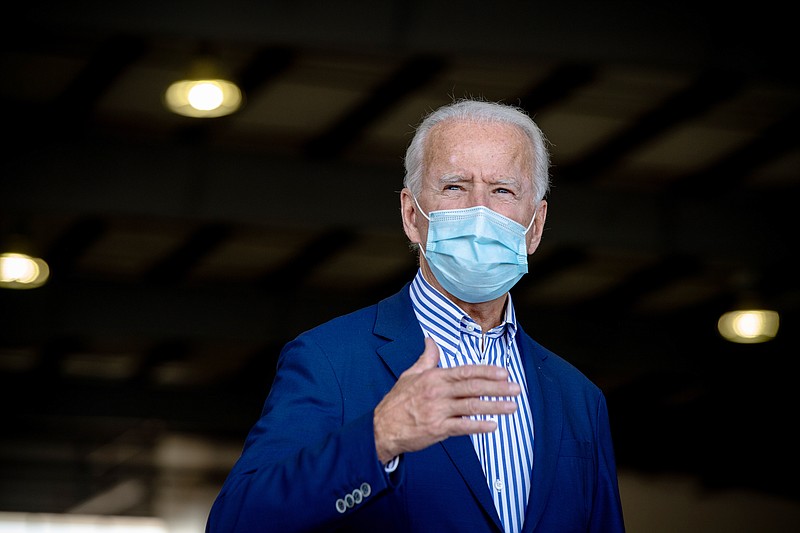The media never likes it when politicians won't answer a question. That's true whether the politician is Donald Trump or Joe Biden or Mike Pence or Kamala Harris.
But we like it less when the non-answer is not even close to what we asked or is nonsensical or is a lie and they pretend they did answer it.
So today we're giving Joe Biden a thumb's up for at least saying up front - and why - he's not answering the question of whether he would "pack" the Supreme Court if the Republican-led Senate names Amy Coney Barrett to the bench.
The question has come up again and again in recent days.
Both at the presidential and vice presidential debates and last week, Biden and Harris didn't answer.
And in Phoenix on Thursday Biden said forthrightly:
"You will know my opinion on court-packing when the election is over. The moment I answer that question, the headline in every one of your papers will be about that rather than focusing on what's happening now. This election has begun. There's never been a court appointment once the election has begun."
There is, of course, way more to this than just Biden's answer.
The idea of adding justices to the Supreme Court has been floated off and on for years, and it is not without historical precedent. President Franklin D. Roosevelt, angered because the court kept thwarting what he needed to do to bring the country out of the Great Depression, suggested a version of it. It didn't go well for him. It was met with bipartisan ridicule, and FDR suffered what one historian has called "a humiliating political defeat."
But now, more than eight decades later, some Democrats again are talking up the idea in the wake of liberal Justice Ruth Bader Ginsburg's death.
The Constitution doesn't spell out how many justices should serve on the Supreme Court. George Washington named six, moments after Congress passed the Judiciary Act of 1789. Under Abraham Lincoln, the number of justices grew to 10 before Congress decided to set the number at nine in 1869.
Of course that was way before Senate Majority Leader Mitch McConnell stole a chief justice nomination from President Barack Obama by stalling a vote on Merrick Garland for a year, saying the next president would make the choice. Now we're weeks away from an election, and McConnell has his hand on the confirmation throttle.
Biden hasn't wavered in his determination not to answer the pressing question.
Last month he told WBAY News that his discussion of it could be used by Republicans as a distraction from the GOP's effort to jam Barrett's nomination through.
It "will shift the focus," Biden said. "That's what [Trump] wants. He never wants to talk about the issue at hand and he always tries to change the subject. ... The discussion should be about why he is moving in a direction that's totally inconsistent with what the founders wanted. The Constitution says voters get to pick a president who gets to make the pick and the Senate gets to decide.
"We're in the middle of the election right now," Biden went on. "People are voting now. By the time this Supreme Court hearing would be held, if they hold one, it's estimated 30 to 40 percent of American people already have voted. It is a fundamental breach of constitutional principle. [The focus] must stay on that and it [a pre-election confirmation] shouldn't happen."
He's right. About all of it.
